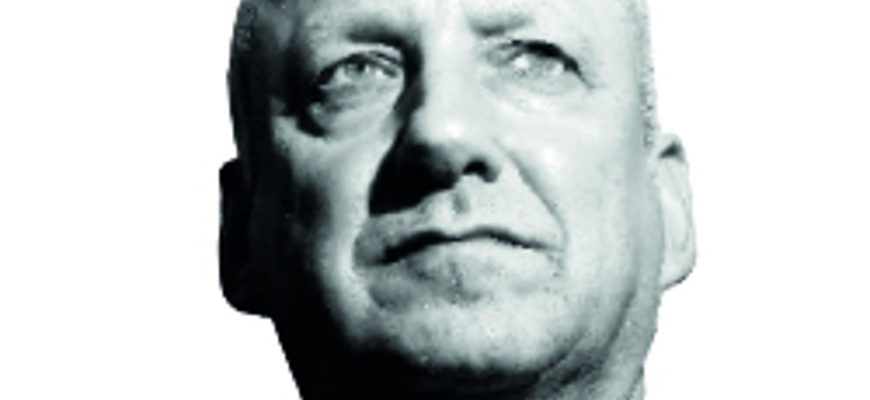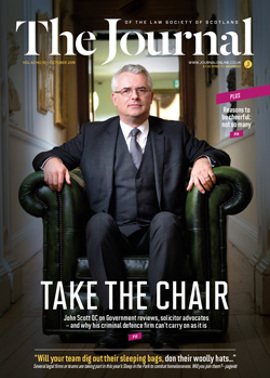Clients, care, competence and... cancer

In June this year, I was diagnosed with cancer and underwent major surgery. I was lucky to have access to great care and to be given a positive prognosis, but still, I’d be lying if I said the last few months have not been sobering. A cancer patient is a very particular kind of client, whose issues actually are life and death, rather than just seeming that way on a bad day. My recent experiences with the medical profession seem to offer lessons for every professional, including lawyers, and I’d like to share some of them with you.
You cannot overestimate personal relationships
I knew before I met my surgeon that, as the department head of a London teaching hospital, he was luminously qualified to do the operation, and if he had turned out to have the personality of Voldemort, I expect I would have accepted it. But instead, he was exceptionally open and warm. He was genuinely interested in me as a person, asking me in depth about my family, what I did professionally, and the impact on me of the diagnosis.
And he made a point of sharing about himself. What had drawn him to a career in surgery, how he had a passion for all things mechanical, including flying helicopters, and from a very early age had loved “fixing things”. I had been referred to him by one of his colleagues who is a close friend, and maybe this warm introduction encouraged chat he might not have with other patients. I can’t know for sure. But what I do know is that the effort he made to establish a personal rapport made a massive difference.
It cannot be said too often that, with the exception of the simplest, most commoditised service, it is high-quality personal relationships that keep clients coming back. Creating them means investing significant time – much of it non-chargeable – getting to know them well, and also, crucially, allowing them a glimpse of what lies behind our professional veneer.
The craving for clarity
What every cancer patient wants to know is “Am I going to die?” The answer is always “Definitely”, but whether it is from this condition is another question altogether. Often, the answer is far from simple, but no one needs an explanation laden with complexity and ambiguity. What we need are the boiled-down essentials, in plain English, which paint a clear, realistic picture of prospects and what is going to happen on the journey.
So it is in the law, whether we are dealing with a dispute, a deal, or a date of entry. The best of us are accomplished at this, and confident in our opinion. But it is surprising how often we fall short, choosing to take refuge in a miasma of “on the one hand, but on the other”, before concluding, “please let us have your instructions” – an approach which prioritises CYA over QED. Nothing is more likely to leave clients feeling shortchanged and hurtling into the arms of the competition.
The pre-eminence of empathy
In 2014, Ashish Jha, Professor of Global Health at Harvard University, was preparing a lecture entitled, “What Makes a Good Doctor?” He asked his Twitter followers for their views and received 200 responses. Number one was empathy, closely followed by the ability to listen. Technical skill came fifth.
A recent article in the British Medical Journal put it this way: “The truly good doctor must of course be technically proficient and know the craft of medicine... Good doctors are humble, willing to listen to their patients and gather together the full array of resources – medical, human, social, and spiritual –that will contribute to their patients’ healing.”
Were you surprised by the responses to Professor Jha? After all, what is the use of a lovely, kind doctor, who smiles, nods, listens reflectively, and then through ignorance makes the wrong diagnosis? We have to accept that whether it is medicine, the law, or any other profession, it is human nature to take for granted that the advisers we consult have the black-letter knowledge, and therefore we give them comparatively little credit for it. But we do give them enormous credit if they are able to listen to us (not just hear us) and, having listened, connect. That we rank skill below empathy may not be fair, or rational, but it’s a fact that no one with aspirations to build a successful, resilient practice can ignore.
Non-medics have the good fortune that rarely are we asked for advice that affects our clients’ chances of physical survival. But the disciplines of medicine have much to teach us about how to conduct successful operations.
In this issue
- Online and out of line
- Timing the test for detriment
- The power of conversation
- Making Scotland an ACE aware nation
- Reading for pleasure
- Opinion: Jane Mair
- Book reviews
- Profile: Amanda Davy
- President's column
- Round Scotland from A to Z
- People on the move
- When crime no longer pays
- Hold tight for Brexit
- Debt: finding the right formula
- The thick of it
- Fringe benefits boost conference appeal
- Private revolution
- Document Data Group Form Partnership with Law Pro
- Where have all the new firms gone?
- New specialist land registration practice launches
- Sentences in many guises
- Law firms: how to attract and retain the best talent
- Licensing Armageddon – again?
- Planning Bill changing shape
- HMRC called offside in referees case
- Powers of attorney: two essential practice points
- Better access to the law
- Finding the right blend
- Look out for AML certificate launch
- Public policy highlights
- Clients, care, competence and... cancer
- Practice rights and Brexit: working in the UK
- Claims of our age
- Ask Ash
- Paralegal pointers
- A sleep in the park






